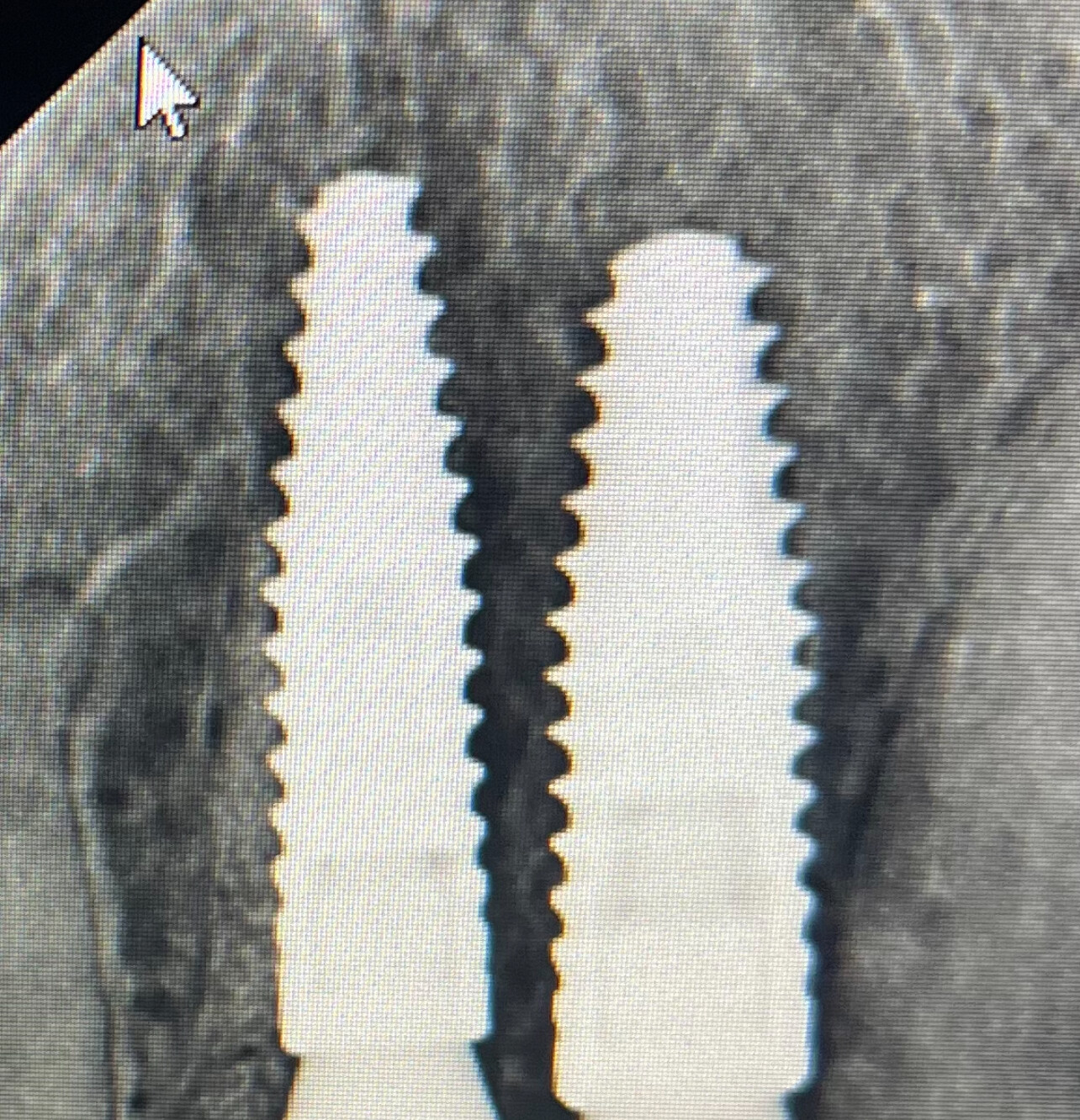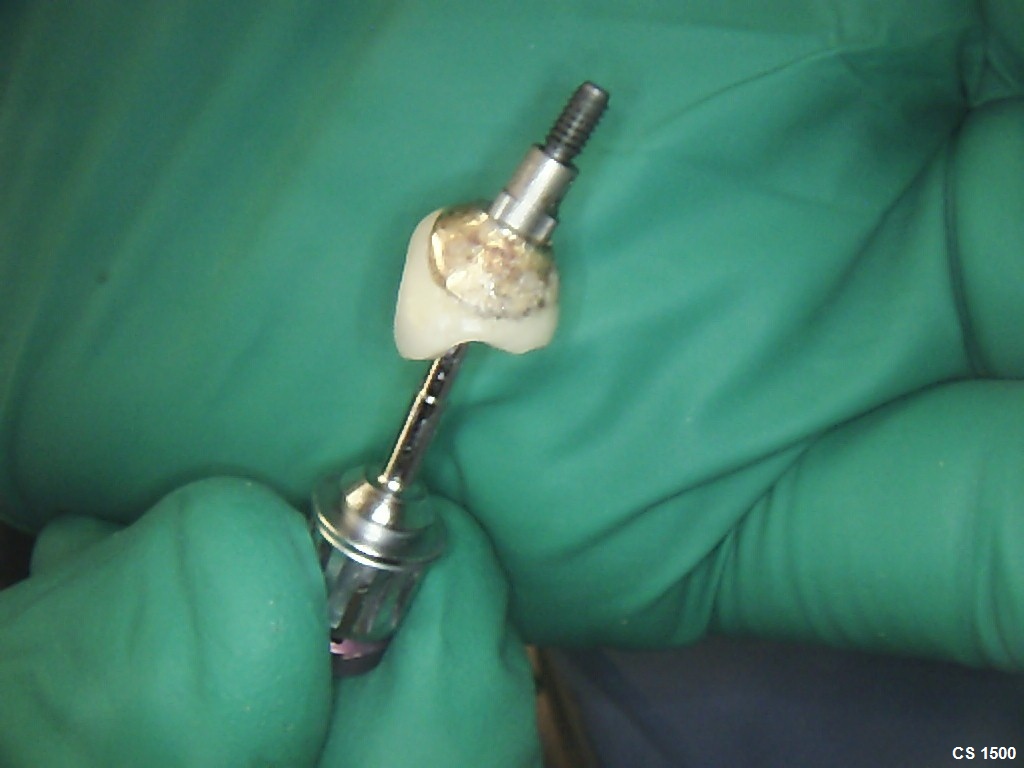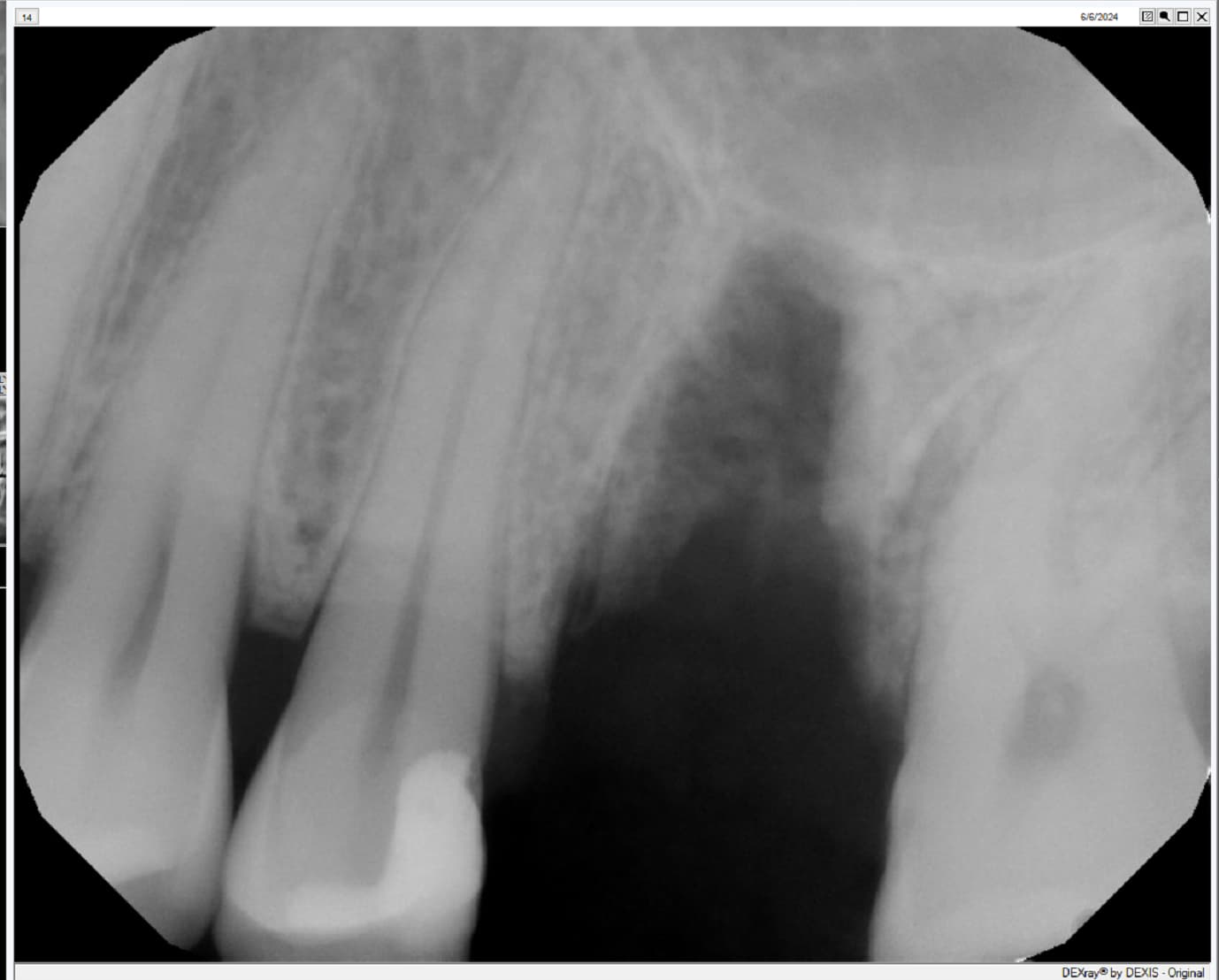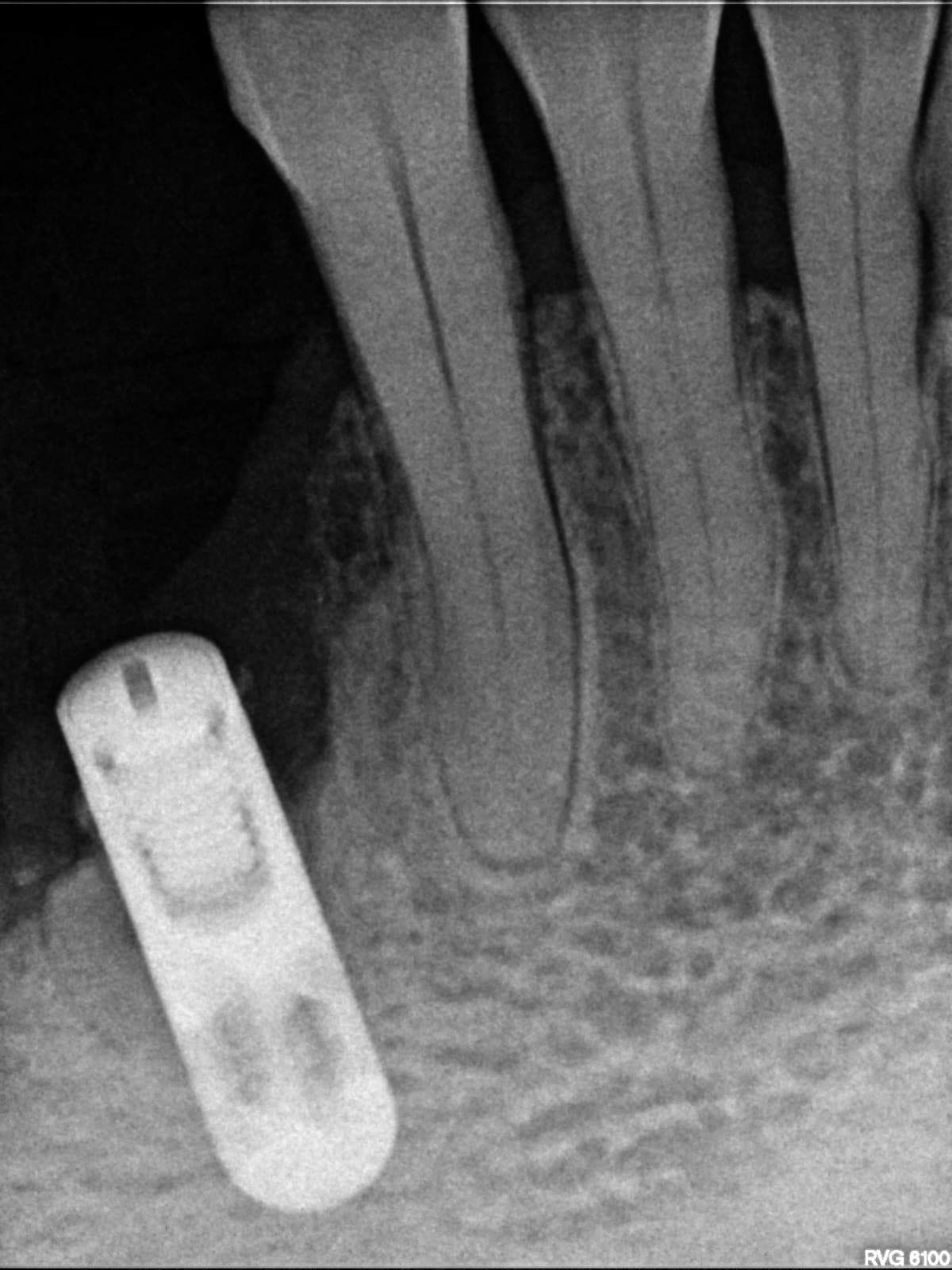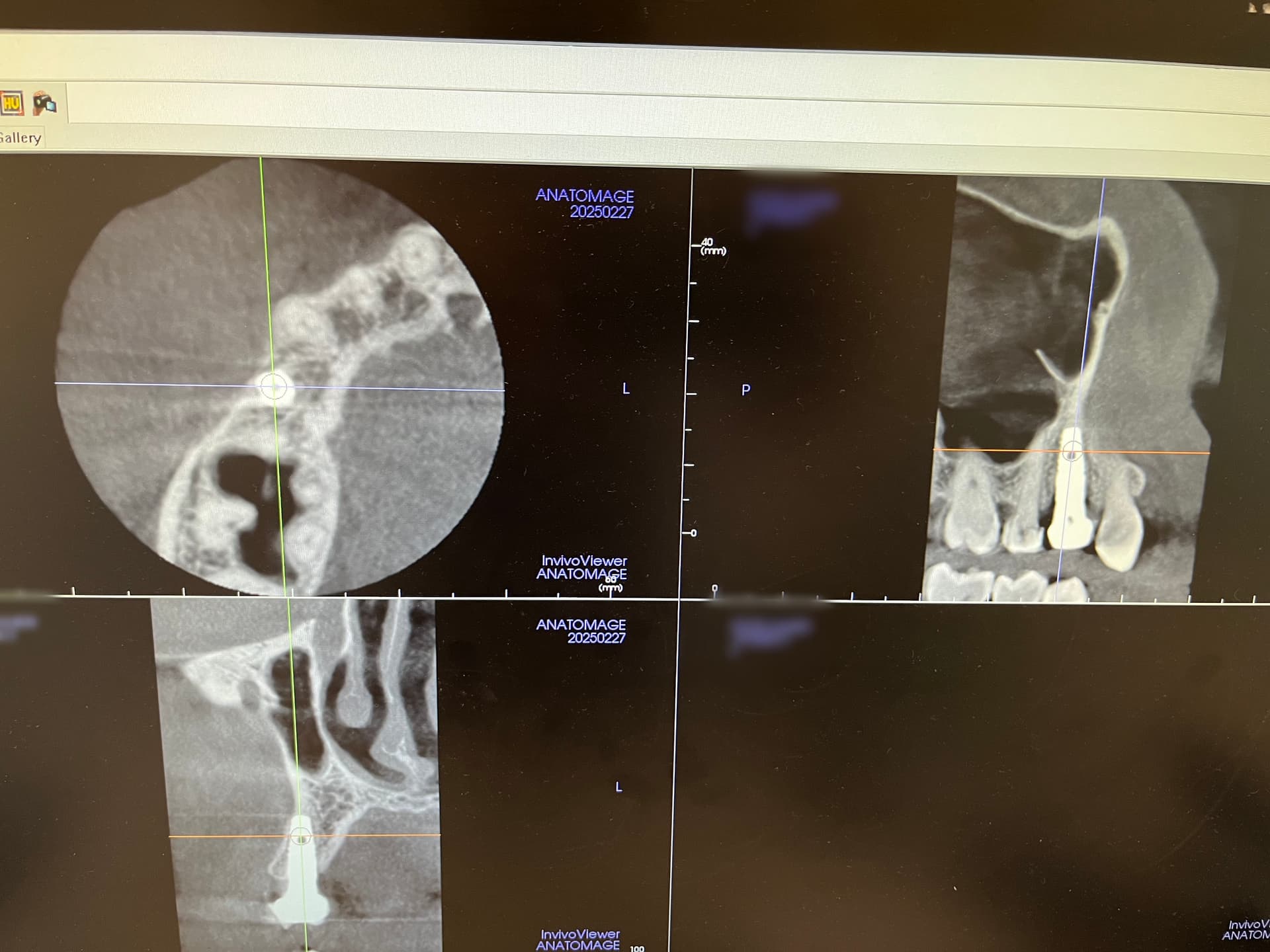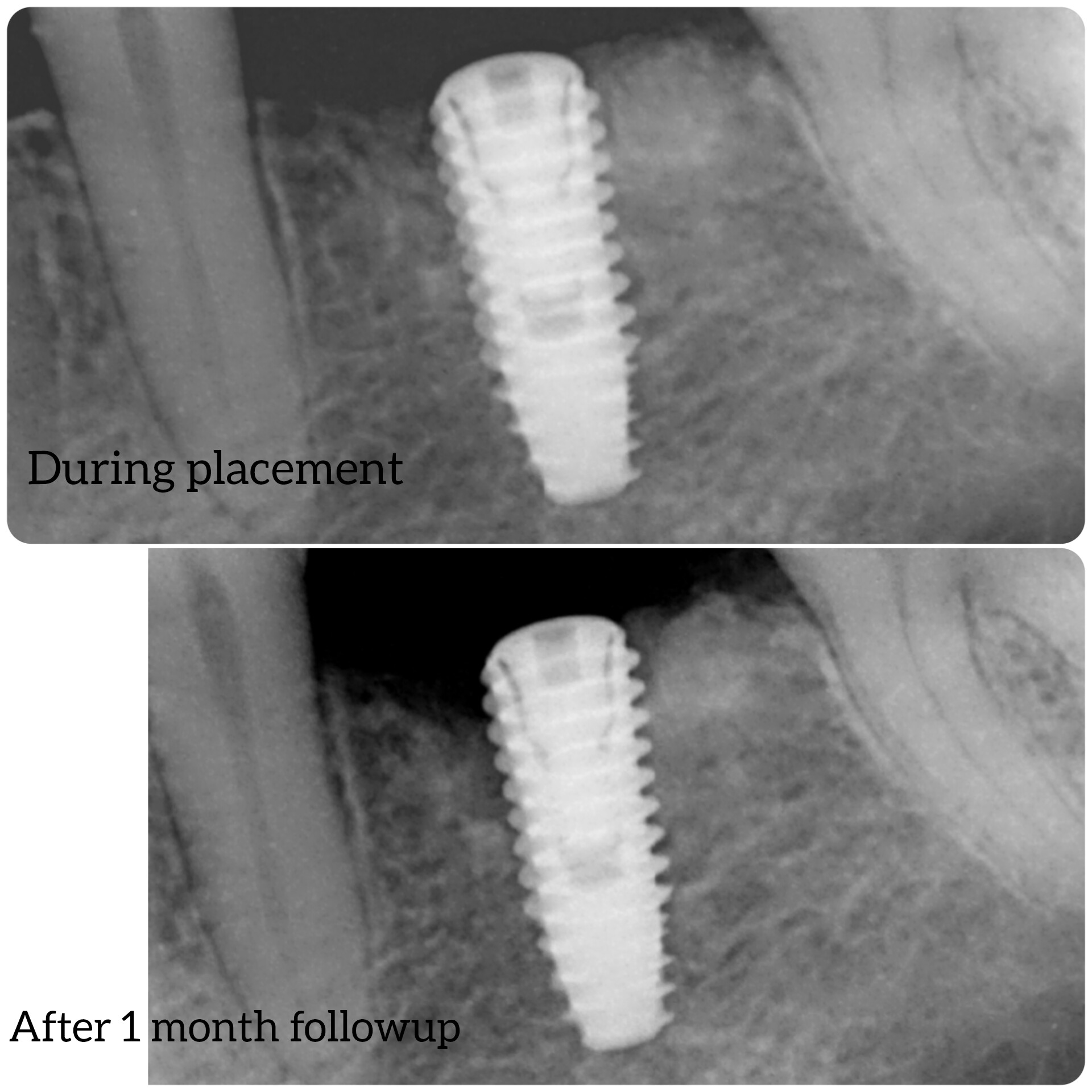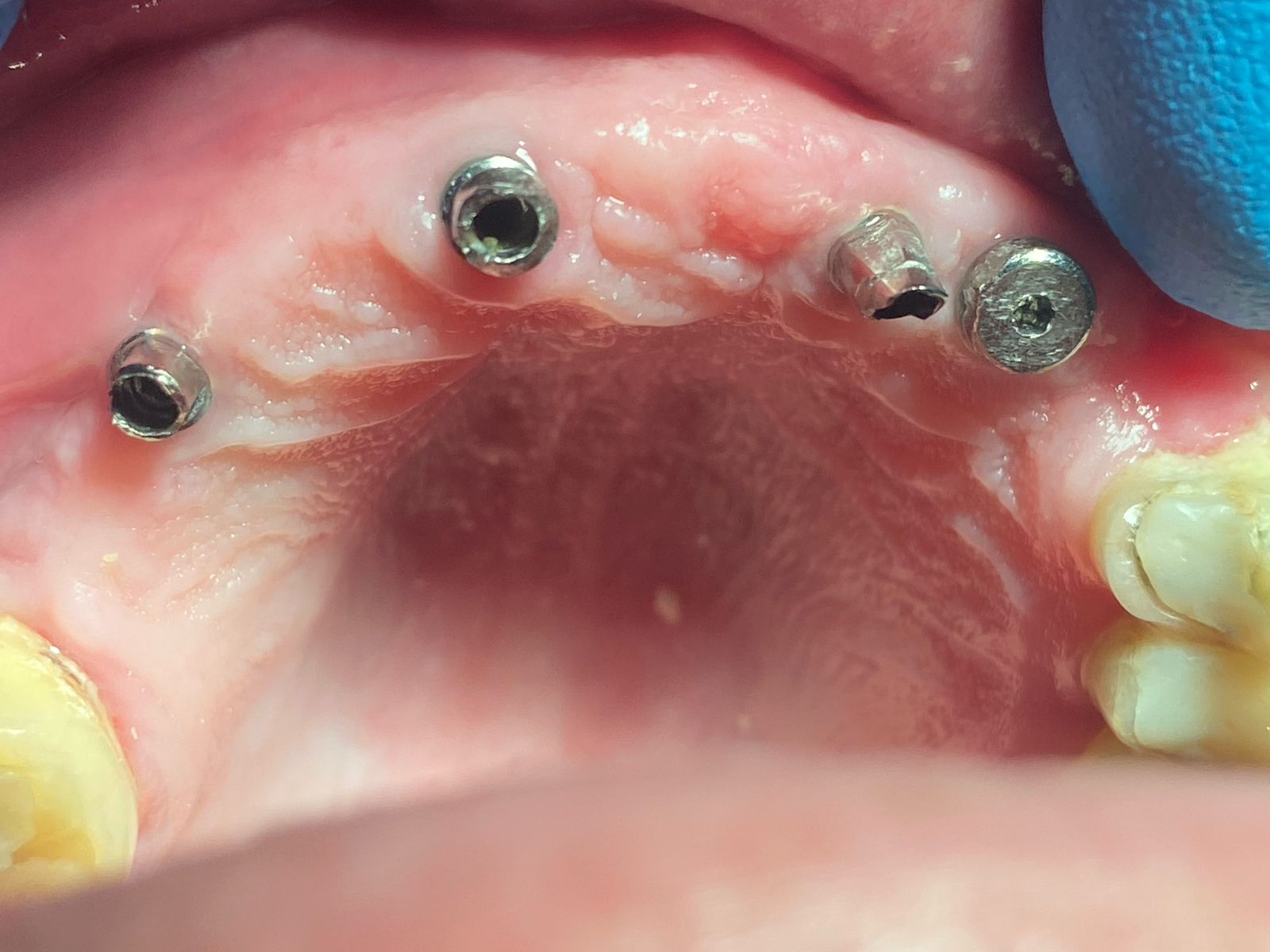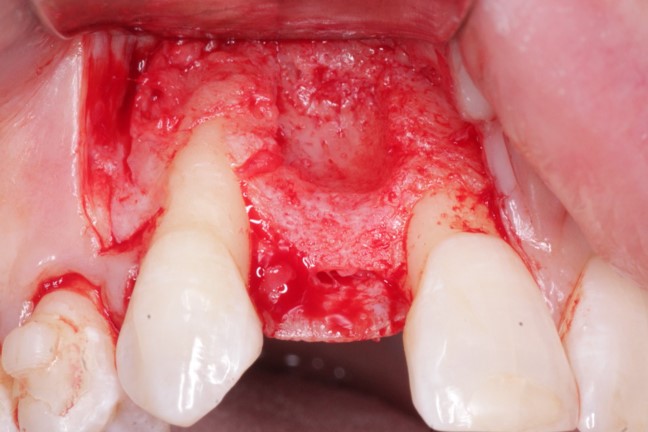Improve Implant Case Acceptance Rate
Dr. H. asks:
I am working with a management consultant to improve my case acceptance rate of dental implant treatment plans with patients. We would like to assemble a list of the 10 most frequently asked questions by potential dental implant patients so we can develop the most effective answers. So, I would like to know what are the most common questions your potential dental implant patients ask and how do you answer them? Thanks.
11 Comments on Improve Implant Case Acceptance Rate
New comments are currently closed for this post.
Larry S.
4/10/2007
I've been doing implants for 25 years now and I can boil most patients questions down to the following:
1)How much does it cost?
2)How much does it cost?
3)How much does it cost?
4)How much does it cost?
5)How much does it cost?
6)How much does it cost?
7)How much does it cost?
8)How much does it cost?
9)Will it Hurt?
10)Does my insurance pay anything?
I think it is a huge mistake to get overy technical with patients. The want a result, they so not need to understand the nuances of osseointegration. Focus on results, inform appropriatly and us a lot of graphics (I use Power Point at chairside) and watch your case acceptance go up. Just my humble opinion.
Doug Heller
4/10/2007
You should check out the xcpt software whose ad runs on the promotional page here. Right away your case acceptance will increase.
Moscatiello RM
4/11/2007
Do the implant has some chance of rejection?
Moscatiello RM
4/11/2007
How much time takes the complete treatment?
Dr. S
4/12/2007
If it doesn't work what then?
Can you put one in where one failed before?
Dan K
4/12/2007
As Larry S says, cost is the big one, I feel the cost is worth it myself, but it's important to remember that most people simply have no option to accept the treatment, the process of fixing the teeth in my maxilla is going to run me about 35k from getting teeth pulled to getting a fixed bridge. A lot of the dentists here might see that as a significant investment, but you live in a whole different reality financially than many of your patients. That 35k involves me putting about half of my paycheck towards teeth for a four year period, I'm single and live dirt cheap, I don't require bone grafting, my health is good and I am about as slam dunk of a case as you can get, getting my teeth fixed the way I want is my number one goal but even so the cost is very prohibative. With financing and agressively paying things off I won't have the work I want completed until about a year from now, and I'll still be two years away from having paid off everything. This is with about 10k of my own money before any financing comes into it.
I read this site religiously and I want to smack my head against a wall every time I see a post stating that they'd rather spend the extra money to insure the best outcome for the patient, and that using a cheaper implant just to pocket more money is unethical, why is it assumed that the dentist has to pocket the money, it's as though the idea of lowering your own costs allows you to provide better treatment to the patient by putting the superior treatments into their price range. If my doctor was willing to use implant direct (and didn't have to re-invest in new equipment to be able to place them) and simply knocked the difference of the price of parts off I'd save about 6,000. He'd still make the same amount of money, I believe I would get every bit as good of treatment. I have no reason to believe that the implant direct implants are inferior and I've seen very few posts by the professionals here that indicate they feel there is a quality issue there either.
There was a point when only the rich could afford dentistry, and I think that we're at one of those points again, implant procedures need to be more affordable, and possibly more easily financed. Nothing against the many professionals on this board, I believe all mean well and none of you can do much about the price, at least individually, but I do think that your viewpoint on how significant the costs really are are biased by how affordable it is for you. It's easy for me to turn down a $20 for doing some minor computer work for someone, I don't view it as signficant, until I consider how much that is for someone who has to work a full week to clear $250. How much money does it take for you to consider it significant (I'm guessing my $20 might be closer to many dentists $100 - $150...). I realize you've all worked and continue to work extremely hard to earn the money you make, I'm not complaining, you deserve it, but the difference in payscale being what it is, it's hard to empathize with someone who makes 10% of what you do about monthly expenses.
sarah
4/20/2007
how much would 2 bridges cost ?
Also i have a reaction at the dentist can you get put to sleep?
Dr. Fouda
4/24/2007
Dan K
All implants that are FDA accepted or have CE in europe is equal.. so if you get a fancy and expensive implant ot is the same as the cheaper one.. the important factor here is the surgeon skill..
And you can travel to some countries that have cheaper prices as in latin america or Egypt and get your work done, do sight seeing and save money too..
Alex R
6/10/2007
Dr Larry S. - Sounds like your patients (most of whom are probably wealthy and can afford you) are trying to convey an important message. Let me put it this way; when a basic set of fixed overdentures on implants costs more than a BMW, something is drastically wrong. And, when the wealthy start to complain - WOW!
Dan K - As a professionally designated accountant for over 35 years, I can assure you that there are numerous ways dental professionals can easily lower their overhead expenses, enabling them to charge more reasonable fees so that guys who put the BMWs together can afford implants. Over the years, I have seen how professionals in all fields bill their clients &/or patients. Far too many, including some in my profession also, bill what the traffic will bear rather than what is fair and reasonable compensation relating to their expertise. Yes, I am disillusioned by the rampant avarice out there.
Larry S.
6/12/2007
Alex R—I am not sure you got my point. I was being a bit facetious about the money issue, but it is a major concern for my patients. I am fortunate to practice in a fairly affluent city, but my patients often have every dime budgeted and an implant is the last thing on their agenda. My philosophy has always been to give the patient the “maximum bang for the least buckâ€. I am not a proponent of full mouth- implant supported crowns, as I think there are better more cost effective ways to manage these cases. If you’re getting fees any way near the cost of a BMW for an over denture case, please have them give me a call. I bet we can fly them in, put them up for a week and still be way under a Bemer cost! Sadly, too many of our colleagues have seen implant dentistry as a fertile ground for charging exorbitant fees.
Jeff Ganeles
6/12/2007
All patients want to know what it costs and that is usually the first question that is asked. One of the biggest reasons for this is that patients often don't know what else to ask.
Instead, we try to redirect the conversation and assure the patient that we will answer the cost issue, but first, we want to help them understand what they are buying. After all, we say, "What does it cost to fix a car?" Obviously, the answer depends on what needs to be done.
We then try to control the consultation and direct information to answer the following questions in sequence:
1. What will I look like when I am done?
2. How will I feel?
3. How long will it take?
4. How much will it cost?
If we adequately answer these questions, we schedule treatment. If not, we are scrambling to save a case. Usually, we collect a deposit and make an appointment.
We developed a patient education software program called DentalImplan which fits into our consultation system and offers many advantages to users. It is simple to use, easy for patients to understand and is graphically clean so as not to confuse or frighten patients. It can be tried at www.dentalimplan.com
Successful practices all develop their own styles for handling cost issues. We try to build value using sophisticated, but easy-to-use computer generated visual aids.










